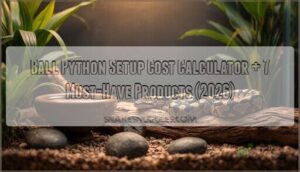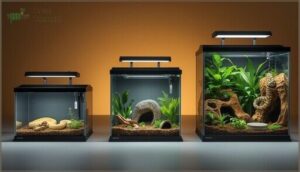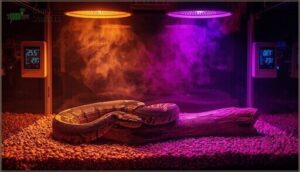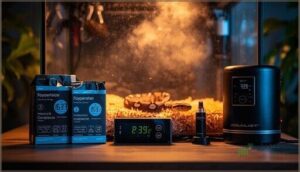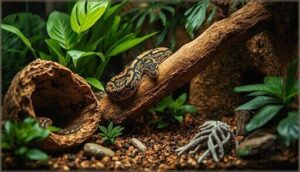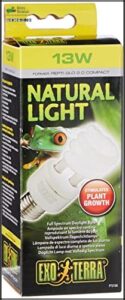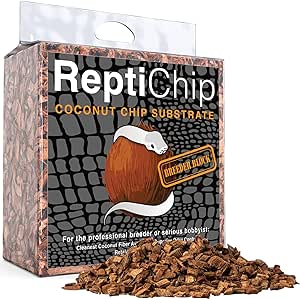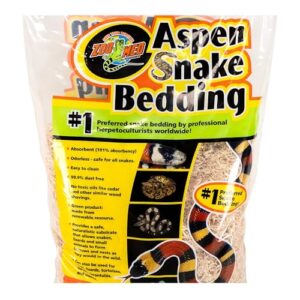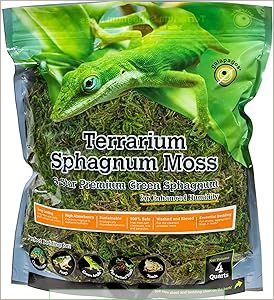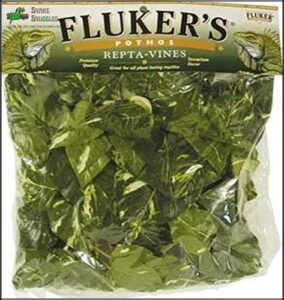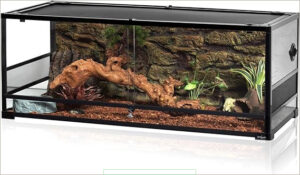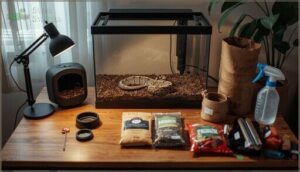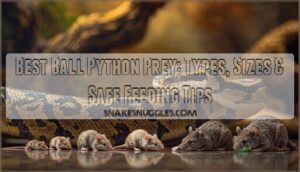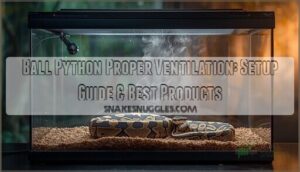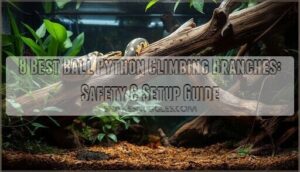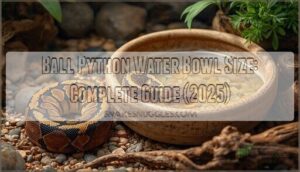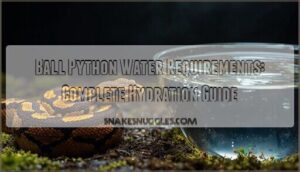This site is supported by our readers. We may earn a commission, at no cost to you, if you purchase through links.
Your first ball python will cost between $300 and $1,200 to set up properly, depending on whether you choose budget-friendly basics or premium equipment. That wide range catches many new owners off guard.
A ball python setup cost calculator removes the guesswork by accounting for enclosure size, heating systems, substrate choices, and ongoing expenses like food and veterinary care. Without one, you’ll either overspend on unnecessary upgrades or risk cutting corners on essential equipment that keeps your snake healthy.
The right tools don’t just save money—they prevent costly mistakes like incorrect temperatures or inadequate humidity that lead to respiratory infections and expensive emergency vet visits.
Table Of Contents
- Key Takeaways
- Ball Python Setup Cost Calculator Overview
- Essential Enclosure and Equipment Expenses
- Ball Python Purchase and Ownership Costs
- Top 7 Ball Python Setup Products
- Tips to Save on Ball Python Setup
- Frequently Asked Questions (FAQs)
- How expensive is owning a ball python?
- Is 70 degrees too cold for a ball python at night?
- Is a 40 gallon tank too big for a ball python?
- How much does it cost to adopt a ball python?
- How much does a ball python enclosure cost?
- How much do ball python Breeders cost?
- Should you buy a ball python?
- How much does a ball python Cage cost?
- How much does it cost to maintain a ball python?
- How much should I pay for a ball python?
- Conclusion
Key Takeaways
- You’ll spend $300 to $1,200 upfront for a complete ball python setup, with monthly care running $15 to $60 depending on your equipment choices and the morph you select.
- Your snake’s enclosure size directly impacts both initial costs and long-term health—hatchlings need 20-gallon tanks ($25–$60) while adults require 40–75 gallons ($150–$350) to thermoregulate properly.
- Strategic cost-cutting through bulk substrate purchases, used equipment, and energy-efficient heating can reduce your setup expenses by 25–60 percent without compromising your python’s safety or wellbeing.
- Proper humidity control and temperature gradients aren’t optional upgrades—they prevent respiratory infections and costly emergency vet visits that exceed your entire initial setup investment.
Ball Python Setup Cost Calculator Overview
Setting up a ball python doesn’t have to break the bank, but you need to know what you’re really spending. The calculator below breaks down both your one-time startup costs and the monthly expenses you’ll face as an owner.
Your snake’s initial price depends heavily on its morph—check out the ball python morph market to see how genetics affect what you’ll actually pay.
Understanding these numbers upfront helps you budget realistically and avoid surprises down the road.
How The Calculator Works
Three core components drive this ball python setup cost calculator’s data flow. You input your specific choices—enclosure size, heating system, morph price—through a user-friendly interface.
The calculator anatomy then processes your selections through these steps:
- Gathers your equipment selections from each setup category
- Calculates individual item costs based on current market prices
- Separates one-time expenses from recurring monthly costs
- Displays your total investment using clear breakdown technology
Initial Vs. Ongoing Costs
Your first-year investment breaks sharply from what you’ll pay over time.
Here’s the cost structure:
| Category | First Year | Years 2+ |
|---|---|---|
| Enclosure & Equipment | $180–$450 | $0–$50 |
| Monthly Expenses (food, substrate) | $180–$300 | $180–$300 |
| Veterinary Care | $40–$100 | $40–$100 |
Understanding the difference between initial and operating costs can help you plan your budget more accurately.
Key Factors Affecting Total Cost
Your total spend depends on five variables: the enclosure size, the morph you purchase, your heating method, substrate preference, and how often you upgrade décor.
A budget-conscious owner might spend $300 initially with $15 monthly ongoing expenses, while premium setups can exceed $1,200 upfront. Price differences add up quickly when you factor in these financial considerations for proper cost estimation and budget planning.
Budget-conscious ball python owners spend around $300 initially, while premium setups can exceed $1,200 upfront
Essential Enclosure and Equipment Expenses
Setting up a proper ball python habitat requires several core components, and your enclosure is the foundation of everything else. The right tank size depends on your snake’s age and sex, but you’ll also need heating equipment, substrate, and enrichment items to create a safe environment.
Here’s what you can expect to spend on each essential piece of your setup.
Enclosure Size and Pricing Breakdown
Your ball python’s enclosure size directly impacts both price and your snake’s well-being. Hatchlings thrive in 20-gallon enclosures costing $25 to $60, while juveniles need 40-gallon setups averaging $60 to $160.
Adult ball pythons require 40 to 75 gallons, ranging from $150 to $350 new. Glass terrariums offer excellent visibility but cost more than plastic alternatives, and proper ventilation systems add another $15 to $40. It’s important to account for factors like when choosing the right setup for your ball python.
Heating and Lighting Equipment Costs
Quality heating and lighting setup runs $60 to $150 initially, but that investment pays off in your snake’s health. Your temperature gradient depends on choosing the right heat source.
Pair your heat setup with a moisture-retaining substrate like coconut husk to maintain proper humidity without constant misting.
- Heat lamps ($8 to $15) work well but raise energy costs compared to ceramic emitters ($12 to $25)
- UVB light bulbs ($15 to $40) need replacement every 6 to 12 months
- Thermostats ($20 to $70) cut energy use by 25 percent while maintaining safe basking zones
Substrate and Humidity Control Expenses
Maintaining proper humidity in your reptile enclosure costs $50 to $120 upfront, plus $10 to $30 monthly for substrate replacement. Your moisture control setup directly impacts shedding success and respiratory health.
| Item | Initial Price | Substrate Lifespan |
|---|---|---|
| Coconut fiber substrate | $15–$25 per bag | 6–12 months |
| Digital hygrometer costs | $10–$60 | Permanent (battery replacement) |
| Ultrasonic fogger pricing | $20–$60 | 2–5 years |
Humidity controllers ($30 to $120) pair with your hygrometer to automate misting cycles, preventing costly respiratory infections.
Décor, Hides, and Enrichment Items
Your snake needs secure retreats and climbing structures that cost $40 to $100 total. Hollow logs ($12 to $25) and cork bark hides ($8 to $20) give thermal refuges, while artificial plants ($6 to $15 each) create visual barriers.
Branch networks ($15 to $40) encourage exercise and muscle tone in your reptile enclosure, supporting natural behaviors that reduce stress and promote long-term health.
Ball Python Purchase and Ownership Costs
The snake itself represents your largest upfront investment, with prices varying dramatically based on genetics and source. Understanding what drives these costs helps you budget realistically and avoid overpaying for your new pet.
Here’s what you need to know about ball python purchase prices and the ongoing expenses of ownership.
Price Ranges by Morph and Genetics
Your ball python’s price hinges on its genetic makeup. Single-gene morphs usually cost $50 to $250, while recessive traits like albino or clown start around $350 to $500. Gene combinations drive costs higher—two-gene morphs run $1,000 to $3,000, and elite multi-gene combos can exceed $5,000.
- Color saturation and pattern quality add 15–40% to base morph pricing
- Proven het carriers command premium costs due to breeding potential
- Lineage documentation from top breeders boosts value by 10–25%
Breeder Vs. Pet Store Pricing Differences
Where you buy matters as much as what you buy. Pet stores charge less than breeders for basic pets, but breeders charge $150 to $500 more for rare morphs, reflecting high-quality genetic documentation and health guarantees lasting 14 to 30 days.
You’ll find spider or pastel combos cost $400 to $1,000 extra through breeders due to proven breeding value. Pet stores stock affordable basics under $200 but offer limited lineage details.
Typical Monthly and Annual Care Costs
Your monthly budget should account for three core categories that keep your ball python thriving. Consistent food budgeting and habitat maintenance prevent surprise expenses while routine veterinary fees protect long-term health.
- Feeding schedules cost $15 to $60 monthly depending on prey size and consumption rates
- Substrate changes and humidity control run $9 to $20 per month for ideal ball python care
- Annual veterinary fees average $40 to $230 for checkups and preventive screenings
Top 7 Ball Python Setup Products
Setting up your ball python’s habitat requires specific products that balance cost with quality and performance. The following seven items represent essential equipment you’ll need to create a safe, functional environment for your snake.
Each product tackles a critical aspect of ball python care, from lighting and heating to substrate and enrichment.
1. ReptiSun 5.0 UVB Reptile Bulb
You’ll find the Zoo Med ReptiSun 5.0 UVB fluorescent bulb is one of the most reliable choices for ball python lighting. This T8 bulb delivers five percent UVB output, helping your snake synthesize vitamin D3 and maintain healthy calcium metabolism.
It costs about 25 to 40 dollars depending on the length you need. The bulb stays effective for six to twelve months before replacement. Place it within six to eight inches of your python’s basking spot for ideal exposure.
| Best For | Reptile owners looking for a reliable UVB bulb to support their pet’s vitamin D3 synthesis and overall health, especially for species like bearded dragons, turtles, and tortoises. |
|---|---|
| Price Range | $25-40 |
| Lifespan | 6-12 months |
| Maintenance Level | Medium |
| Installation | Requires fixture |
| Coverage Area | 6-8 inch range |
| Safety | Non-toxic |
| Additional Features |
|
- Provides consistent 5% UVB output that helps prevent metabolic bone disease and supports healthy calcium absorption
- Increases appetite and activity levels while promoting natural behaviors in captive reptiles
- Made in America with quality construction that lasts 6-12 months before needing replacement
- Needs to be replaced every 6-12 months, which adds to ongoing maintenance costs
- Must be positioned within 6-8 inches of the basking spot for effectiveness, limiting tank setup flexibility
- Can be pricey at $25-40 per bulb compared to standard lighting options
2. Exo Terra Repti Glo Terrarium Lamp
The Exo Terra Repti Glo 2.0 full spectrum lamp offers bright visual light with a 98 CRI for true color rendering in your terrarium. This 13-watt compact fluorescent bulb runs 8 to 15 dollars and works well as a general daytime light source.
You can pair it with UVB bulbs to boost overall illumination while supporting plant growth. The 6700K color temperature creates natural-looking daylight conditions. Replace it annually since fluorescent bulbs lose about fifty percent of their output quality within one year.
| Best For | Reptile and amphibian owners who need a reliable daytime light source for planted terrariums or species with lower UV requirements. |
|---|---|
| Price Range | $8-15 |
| Lifespan | 12 months |
| Maintenance Level | Low |
| Installation | Standard socket |
| Coverage Area | Small-medium tanks |
| Safety | Non-toxic |
| Additional Features |
|
- High 98 CRI rating renders true colors of plants and animals for a visually appealing display
- Energy-efficient 13-watt design keeps electricity costs low while providing bright daylight
- Pairs easily with UVB bulbs to create complete lighting conditions for your terrarium
- Loses about 50% of its lighting quality within a year, requiring annual replacement
- Not bright enough for animals with high UV needs or larger enclosures
- Doesn’t produce significant heat, so you may need a separate heat source
3. ReptiChip Coconut Reptile Substrate Bedding
ReptiChip Coconut Reptile Substrate Bedding runs 15 to 25 dollars per compressed 72-quart brick and expands to ten pounds when you add water. It holds moisture well for tropical setups, helping maintain the 55 to 65 percent humidity your ball python needs.
The organic coconut chips create a dust-free surface that simplifies spot cleaning, and you won’t need full changes as often. Each brick covers a standard 40-gallon enclosure with about 2.5 cubic feet of soft bedding.
| Best For | Keepers of tropical reptiles like ball pythons who need a substrate that holds humidity well and stays clean between changes. |
|---|---|
| Price Range | $15-25 |
| Lifespan | Several months |
| Maintenance Level | Low |
| Installation | Add water |
| Coverage Area | 40-gallon tank |
| Safety | Organic |
| Additional Features |
|
- Expands to 10 pounds of bedding from one compressed brick, covering a standard 40-gallon tank with soft coconut chips
- Holds moisture consistently to maintain the 55-65% humidity tropical reptiles require
- Low-dust organic material makes spot cleaning easy and reduces the need for frequent full substrate changes
- Costs $15-25 per brick, which is pricier than some other substrate options
- Can take time to fully absorb water during setup if you’re not using a hose
- Some users find the brick dusty when breaking it apart, and it may not work well for reptiles that burrow deeply
4. Zoo Med Aspen Snake Bedding
Zoo Med Aspen Snake Bedding costs 8 to 15 dollars for an 8-quart bag and offers a 191 percent absorbency rating that pulls moisture away from your snake’s body. The shredded texture allows natural burrowing behavior without releasing dust or toxic oils like cedar products do.
You’ll find spot cleaning simple because soiled areas clump together for quick removal. Each bag covers a 20-gallon enclosure with about two inches of depth, and the odorless wood stays fresh between full substrate changes.
| Best For | Snake owners who want a dust-free, absorbent substrate that supports natural burrowing behavior without toxic oils or strong odors. |
|---|---|
| Price Range | $8-15 |
| Lifespan | Several weeks |
| Maintenance Level | Medium |
| Installation | Ready to use |
| Coverage Area | 20-gallon tank |
| Safety | Natural wood |
| Additional Features |
|
- High absorbency rating (191%) keeps your snake dry and makes spot cleaning easy since soiled areas clump together
- Dust-free and odorless formula won’t irritate respiratory systems or fill your room with smells
- Safe natural material with no toxic oils, plus it works for multiple pet types including lizards, turtles, and tarantulas
- Wet spots may not dry completely after heavy soaking, so you’ll need to scoop out damp clumps regularly
- Requires checking compatibility with your specific pet breed before use
- Needs frequent changes to stay sanitary, which can add up in cost over time
5. Galápagos Terrarium Green Sphagnum Moss
Galapagos Terrarium Green Sphagnum Moss costs 8 to 16 dollars for a 4-quart package and holds up to 20 times its dry weight in moisture. You can place this moss in humid hides or around water dishes to create localized high-humidity zones that support healthy shedding cycles.
The natural anti-fungal properties reduce odor buildup in moist areas, and you’ll appreciate how quickly it rehydrates with a simple mist. Each package covers humidity needs for several months in a standard ball python enclosure.
| Best For | Reptile and amphibian owners who need a natural, moisture-retaining substrate to maintain humidity levels and support healthy shedding in terrariums. |
|---|---|
| Price Range | $8-16 |
| Lifespan | Several months |
| Maintenance Level | Medium |
| Installation | Ready to use |
| Coverage Area | Multiple hides |
| Safety | Natural moss |
| Additional Features |
|
- Holds up to 20 times its weight in water, creating effective humid hides and high-humidity zones
- Natural anti-fungal properties help reduce odor in moist environments
- Rehydrates quickly with misting and lasts several months in standard enclosures
- May develop mold if not maintained properly
- Some packages contain heavy green dye that concerns users looking for purely natural products
- Packaging often includes excess air and crumbs, reducing actual usable volume
6. Fluker’s Pothos Reptile Terrarium Vines
Fluker’s Pothos Reptile Terrarium Vines cost around 10 to 15 dollars for a 6-foot length and attach to glass walls with included suction cups. You can drape these non-toxic polyethylene vines vertically to create climbing routes that reduce stress and encourage natural behaviors in your ball python.
The realistic leaves and flexible design blend seamlessly with other décor while resisting fading under regular UVB exposure. Each vine wipes clean quickly with reptile-safe disinfectant and maintains its shape after repeated bending, making maintenance straightforward between full enclosure cleanings.
| Best For | Ball python owners who want affordable, flexible climbing vines that stick to glass and look natural without taking up floor space. |
|---|---|
| Price Range | $10-15 |
| Lifespan | Indefinite |
| Maintenance Level | Low |
| Installation | Suction cups |
| Coverage Area | 6-foot length |
| Safety | Non-toxic |
| Additional Features |
|
- Suction cups make installation easy on glass surfaces and let you rearrange the setup whenever you want
- Non-toxic polyethylene is safe for reptiles and holds up well under regular UVB lighting
- Lightweight and bendable so you can shape climbing paths that fit your tank layout
- Suction cups don’t grip well on acrylic or mesh surfaces, limiting placement options
- Metal wire inside can poke through if the vine gets damaged, creating a potential injury risk
- High humidity can encourage mold growth on the leaves and require more frequent cleaning
7. REPTI ZOO 67 Gallon Terrarium
The REPTI ZOO 67 Gallon Terrarium runs 150 to 220 dollars and measures 48 by 18 by 18 inches, giving adult ball pythons ample floor space to thermoregulate.
You’ll appreciate the front sliding door with a secure lock that prevents escapes during daily maintenance and the raised bottom frame that accommodates heat mats or cables for even substrate warming.
Tempered glass panels offer durability and full visibility, while the removable mesh top allows straightforward UVB installation without blocking necessary wavelengths.
| Best For | Snake keepers who need a spacious enclosure with reliable heat distribution and escape-proof access for daily feeding and cleaning. |
|---|---|
| Price Range | $150-200 |
| Lifespan | 10+ years |
| Maintenance Level | Low |
| Installation | Assembly required |
| Coverage Area | 48x18x18 inches |
| Safety | Tempered glass |
| Additional Features |
|
- Generous 48x18x18 inch footprint gives adult ball pythons proper space to move and regulate body temperature across heat gradients
- Front sliding door with locking mechanism makes feeding and maintenance safer while preventing escape attempts
- Raised bottom frame and waterproof base accommodate heat mats or cables for consistent substrate warming without risk of damage
- May struggle in high-humidity setups despite the waterproof base, requiring extra sealing or misting effort
- Assembly instructions are reportedly vague, so expect some trial and error when putting it together
- Shipping damage is occasionally reported, and you’ll need lamp stands to keep lights off the plastic frame
Tips to Save on Ball Python Setup
You don’t need to break the bank to create a safe home for your ball python. With some smart planning and strategic choices, you can cut your setup costs without compromising your snake’s health or wellbeing.
Here are three proven ways to save money while building a quality enclosure.
DIY and Used Equipment Options
Repurposed materials can slash your ball python enclosure cost by 25 to 60 percent.
Second hand gear like used glass terrariums often sells for 40 to 80 USD, while refurbished heating mats and ceramic emitters work reliably at lower price points.
DIY enclosures built from safe wood and used lighting fixtures provide housing without the premium price tag, making reptile ownership accessible.
Bulk Supply Purchasing Strategies
Bulk discounts from pet store suppliers can lower your cost by 15 to 30 percent when you stock up on substrate, feeders, and enclosure accessories. Inventory management helps you track what you need, while supplier negotiation secures better price points on multi-month orders.
Risk assessment prevents overstocking perishables, and smart cost optimization means your ball python setup stays affordable long-term.
Reducing Energy and Maintenance Costs
Energy efficiency starts with thermostatically controlled heat lamps and UVB light that cut your operating cost by roughly 40 percent. Maintenance scheduling—quarterly audits, annual thermostat calibration, and prompt substrate changes—prevents expensive emergency repairs and promotes sustainable practices in ball python care.
Housing upgrades like sealed insulation reduce heat loss by 30 percent, while resource conservation through smart power strips delivers long-term cost optimization.
Frequently Asked Questions (FAQs)
How expensive is owning a ball python?
Owning a ball python costs $1,000–$1,500 upfront for setup, plus $20–$40 monthly for food budget and utility bills.
Breeder morph price varies widely. Budget $200–$300 for a vet fund to cover emergency costs and annual replacements.
Is 70 degrees too cold for a ball python at night?
Seventy degrees sits at the lower safe threshold for ball python nocturnal care. Your snake tolerates brief cold stress at that temperature, but consistent nighttime thermal gradients supporting snake health require heat lamps maintaining 75–80°F.
Is a 40 gallon tank too big for a ball python?
A 40 gallon tank isn’t too big for a ball python. Juveniles thrive in one, and most adults adapt well if you include multiple hides and maintain proper heat gradients.
How much does it cost to adopt a ball python?
Adoption fees from shelters usually run under $100, often including basic supplies.
Breeder pricing varies widely by morph, with common ball pythons costing $50–$100 while designer morphs exceed $500, impacting your overall ownership budget substantially.
How much does a ball python enclosure cost?
A ball python enclosure costs between $150 and $800 depending on size, materials, and features. Larger terrariums with quality heating and humidity control push costs higher, while DIY setups reduce initial expenses.
How much do ball python Breeders cost?
Rare morphs can exceed $1,000, while standard color variations usually range from $100 to $
Breeder fees for breeding stock with outstanding genetics cost substantially more than pet-grade snakes due to their reproductive value.
Should you buy a ball python?
You’re committing to a pet that’ll be with you for decades.
Ball pythons demand steady care, controlled environments, and consistent feeding every week or two.
If you’re ready for long-term responsibility, they’re wonderful first reptiles.
How much does a ball python Cage cost?
Your snake enclosure is the foundation of proper reptile care, and terrarium designs vary widely in cost.
Budget planning for cage size options ranges from 50 to 300 dollars depending on housing materials.
How much does it cost to maintain a ball python?
Monthly Ball Python maintenance usually costs $30 to $ Food expenses run $10 to $20, while substrate replacements and habitat maintenance add another $10 to $ Budget extra for veterinary care and emergency funds as needed.
How much should I pay for a ball python?
Wondering what’s fair for your first ball python? You’ll pay $40 to $250 for common morphs from reputable breeders, while rare designer genetics can push past $1,000 depending on lineage and traits.
Conclusion
Knowledge is power when planning your snake’s home. A ball python setup cost calculator turns overwhelming expenses into manageable decisions, preventing both overspending and dangerous corner-cutting.
Your initial investment protects against respiratory infections, temperature stress, and costly emergency vet visits down the road. Start with the seven essentials listed here, track both upfront and monthly costs carefully, and you’ll build a thriving environment without financial surprises.
Your python’s health depends on getting the foundation right from day one.

